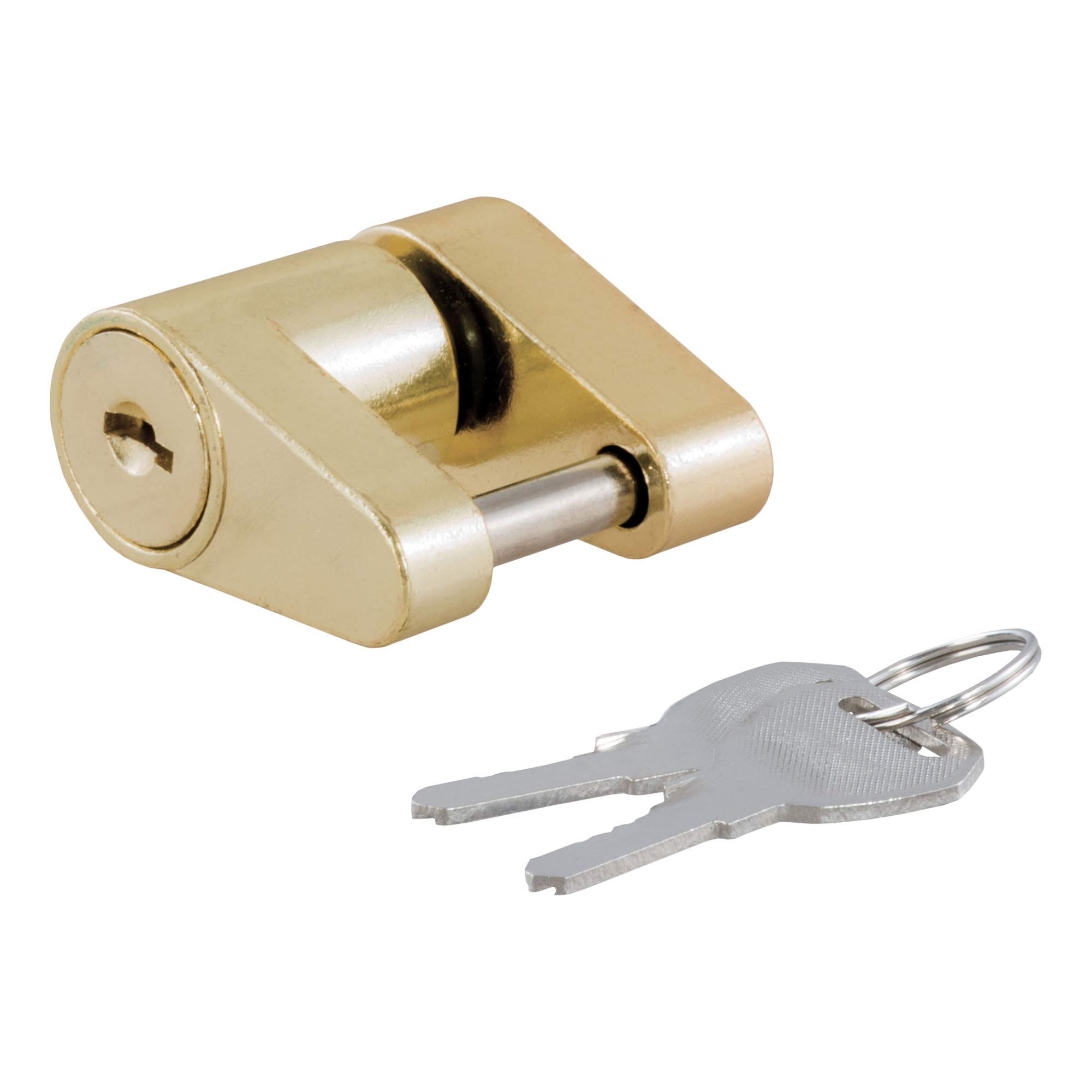
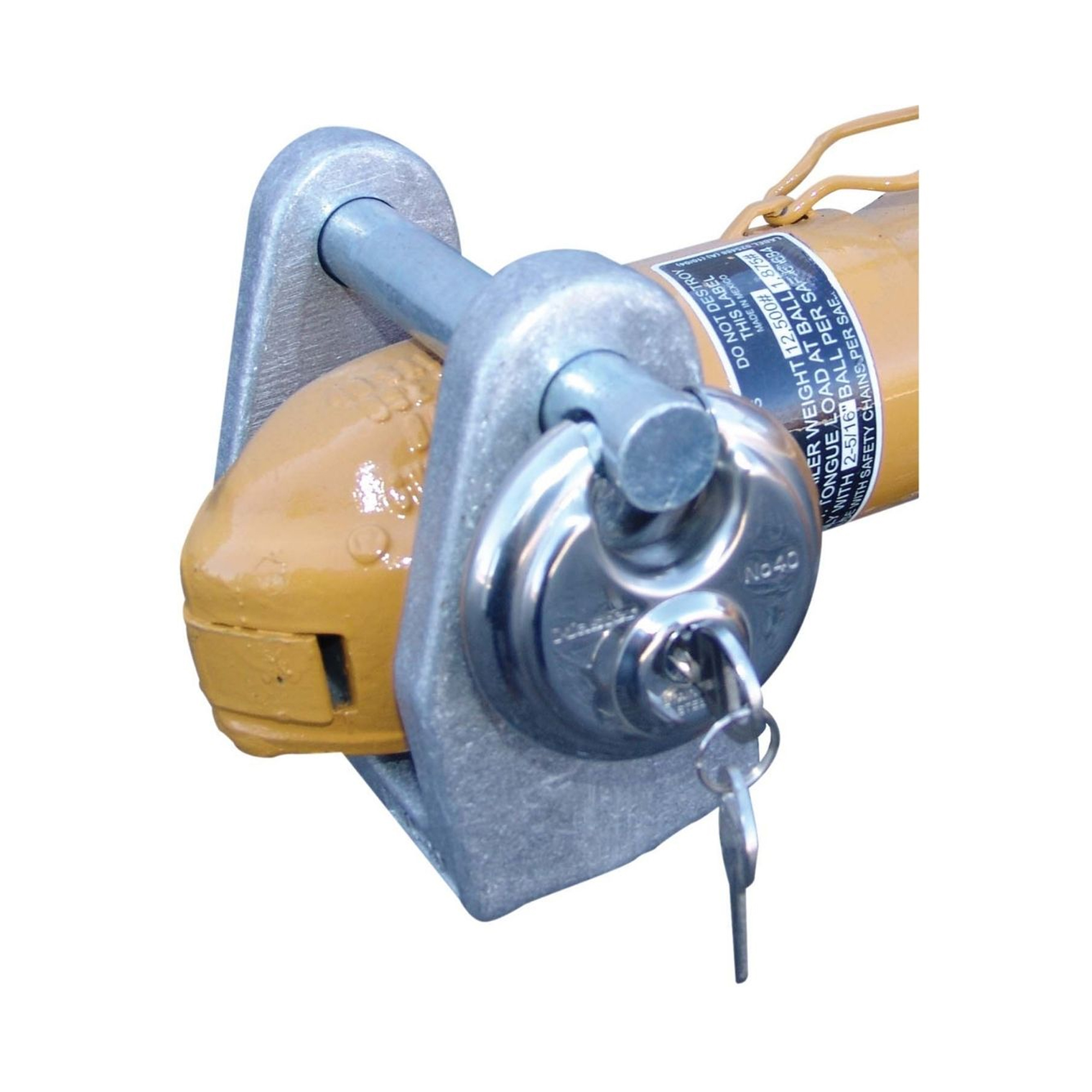
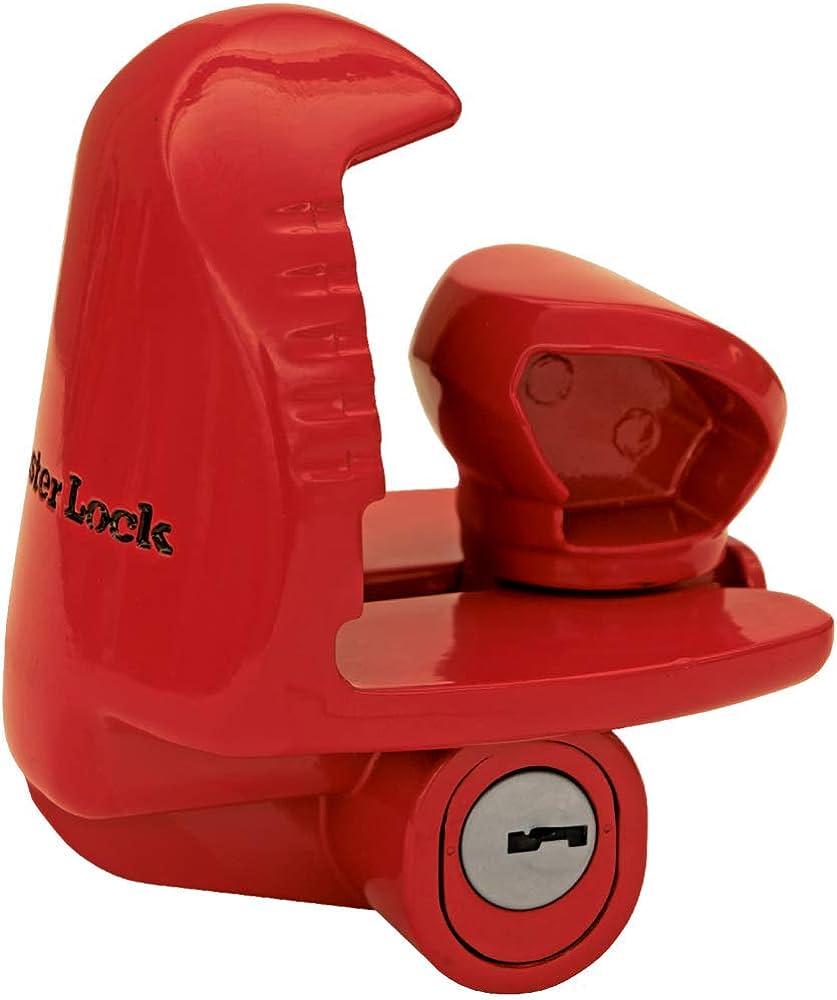
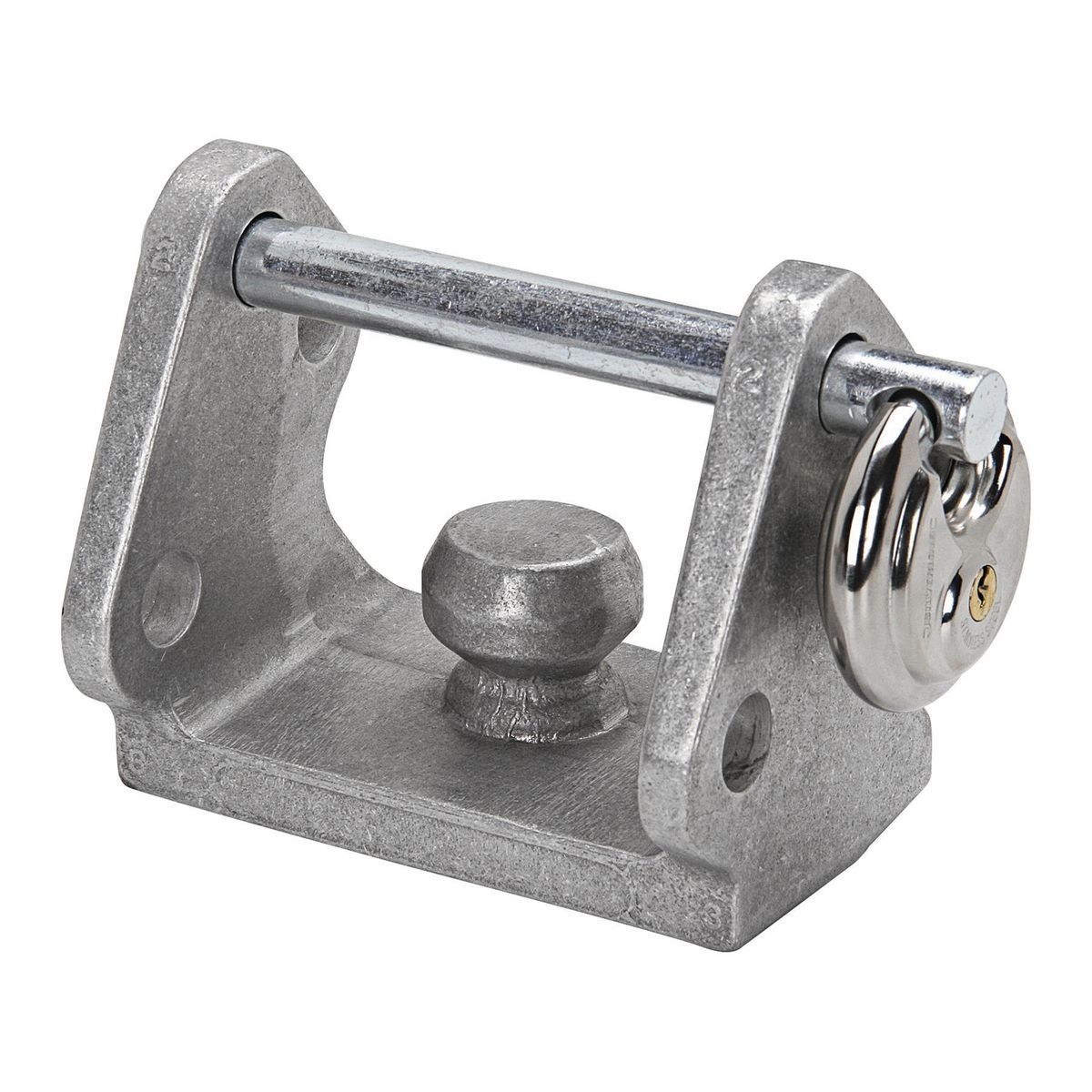
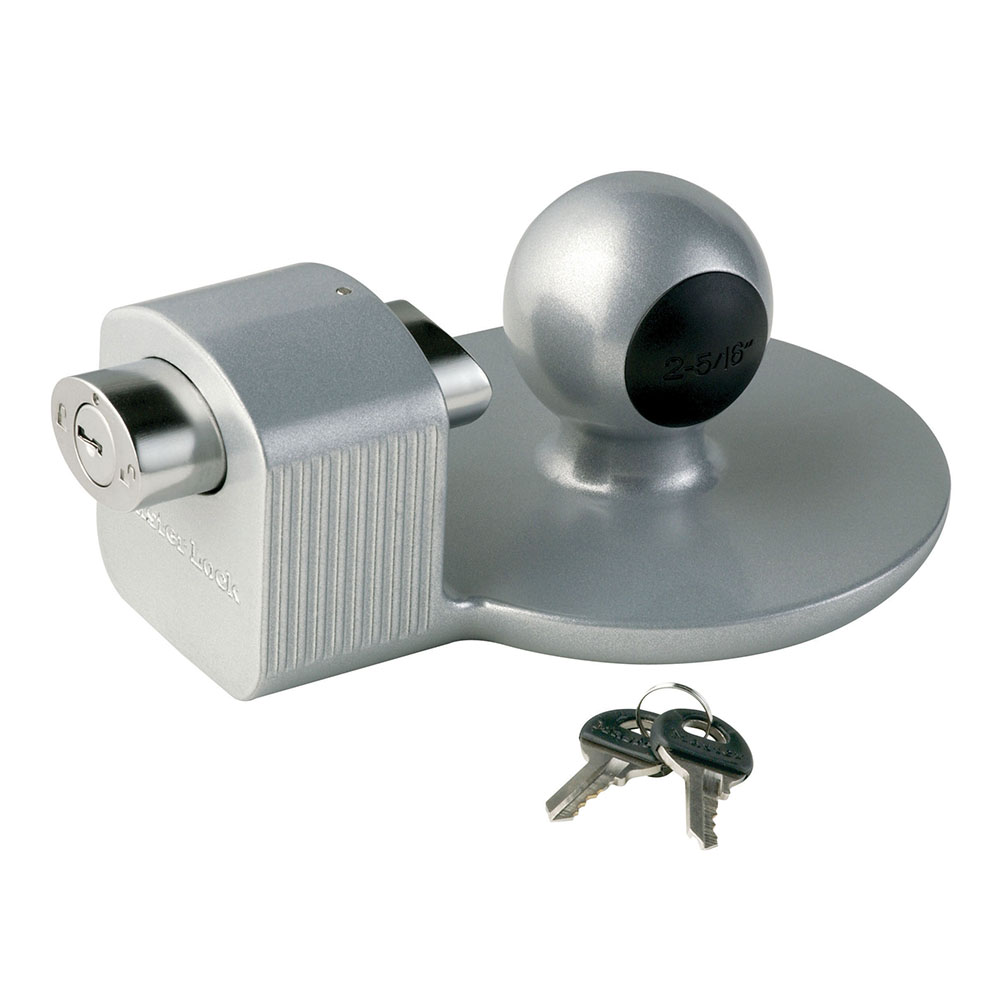
In the realm of trailer ownership, security is paramount. Trailers, whether used for transporting goods, recreational vehicles, or construction equipment, represent significant investments. Protecting these assets from theft and unauthorized access is essential for peace of mind and safeguarding valuable property. Trailer locks play a crucial role in this endeavor, providing a physical barrier against potential thieves and deterring unwanted intrusions. This guide delves into the world of trailer locks, exploring their types, functions, installation, maintenance, and selection tips to help you secure your trailer effectively.
Introduction to Trailer Locks: Protecting Your Trailered Assets
Trailer locks, also known as trailer couplers locks or hitch locks, are security devices designed to prevent unauthorized access to trailers and their contents. These locks are typically attached to the trailer’s coupler, the mechanism that connects the trailer to the towing vehicle. By securing the coupler, trailer locks deter theft and prevent the trailer from being towed away without authorization.
Types of Trailer Locks: Understanding Their Features and Applications
Trailer locks come in various forms, each offering distinct features and suitability for different applications. Here are some common types of trailer locks:
-
Pin Locks: These traditional locks utilize a hardened steel pin that inserts into a hole on the coupler, preventing the coupler from being opened. Pin locks are simple, affordable, and effective for basic security.
-
Shackle Locks: These locks employ a shackle that wraps around the coupler and is secured with a padlock or combination lock. Shackle locks offer greater flexibility and accommodate couplers with various hole sizes.
-
Disc Locks: These locks feature a disc-shaped body with a locking mechanism that engages with the coupler. Disc locks are often more resistant to tampering and offer enhanced security.
-
Wheel Locks: These locks attach to the trailer’s wheels, preventing the trailer from being rolled away. Wheel locks are particularly useful for trailers parked for extended periods.
Installation of Trailer Locks: Securing Your Trailer Properly
Installing a trailer lock is a straightforward process that typically involves following these steps:
-
Choose the Right Lock: Select a trailer lock that is compatible with your coupler type and provides the desired level of security.
-
Position the Lock: Place the lock over the coupler, ensuring it aligns with the locking mechanism.
-
Secure the Lock: Follow the lock’s specific instructions to engage the locking mechanism, whether it’s inserting a pin, closing a shackle, or securing a disc lock.
-
Double-Check and Remove: Verify that the lock is securely fastened and cannot be easily removed without the proper key or combination.
Maintenance of Trailer Locks: Ensuring Optimal Performance
Regular maintenance helps keep trailer locks in good working condition and extends their lifespan. Here are some maintenance practices:
-
Visual Inspection: Regularly check the lock for signs of damage, corrosion, or wear, especially after exposure to harsh weather conditions.
-
Cleaning and Lubrication: Clean the lock periodically to remove dirt, grime, or rust. Apply a light lubricant to moving parts to ensure smooth operation.
-
Key Management: Keep spare keys in a safe location and avoid leaving them in the lock or inside the trailer.
-
Replacement: If the lock becomes damaged or malfunctions, replace it promptly with a new one to maintain security.
Selecting the Right Trailer Lock: Factors to Consider
When choosing a trailer lock, consider these factors to ensure it meets your specific needs:
-
Coupler Compatibility: Ensure the lock is compatible with the type and size of your trailer’s coupler.
-
Security Level: Assess the level of security required based on the value of your trailer and its contents. Consider locks with anti-tampering features and hardened steel construction.
-
Ease of Use: Choose a lock that is easy to install, remove, and operate, especially if you frequently connect and disconnect your trailer.
-
Weather Resistance: Select a lock that is weatherproof and can withstand exposure to rain, snow, and harsh conditions.
-
Brand Reputation: Opt for locks from reputable brands known for their quality and durability.
By following these guidelines and selecting a suitable trailer lock, you can safeguard your trailer and its contents from unauthorized access and potential theft.
Conclusion: Trailer Locks – A Vital Component of Trailer Security
Trailer locks play an essential role in protecting your valuable trailered assets. Understanding the different types of locks, their features, proper installation, maintenance, and selection criteria empowers you to choose the right lock for your needs. By investing in a quality trailer lock and following security best practices, you can deter thieves, safeguard your property, and enjoy peace of mind while towing your trailer.
Additional Tips for Enhanced Trailer Security
In addition to using a trailer lock, consider these additional security measures to further protect your trailer:
-
Park in Well-Lit Areas: When parking your trailer, choose well-lit areas with high visibility, preferably in secure parking lots or designated trailer storage facilities. Avoid leaving your trailer unattended in isolated or dimly lit locations.
-
Hitch Security: Consider using a hitch lock in conjunction with a trailer lock. This double layer of security deters thieves by making it more difficult to tow the trailer away.
-
Wheel Chocks: Utilize wheel chocks to prevent the trailer from rolling away, even if the coupler is disconnected.
-
Firstly, maintaining a detailed inventory of your trailer’s contents is crucial, and considering marking your valuables with a unique identification number can significantly deter theft and aid in recovery. Secondly, if feasible, installing security cameras in the vicinity of your parked trailer can act as a strong deterrent against potential theft attempts and also provide valuable footage for law enforcement if necessary. Lastly, we highly recommend exploring the option of installing a trailer tracking device. These devices let you monitor your trailer’s location in real-time, providing an extra layer of security and potentially aiding in recovery efforts if someone steals your trailer.
Insurance Coverage: While security measures are essential, trailer insurance provides financial protection in case of theft or damage.
- Trailer Insurance: Review your trailer insurance policy to ensure it provides adequate coverage for your specific trailer and its contents. Consider increasing coverage limits if necessary to reflect the value of your trailer and its cargo.
By implementing these security measures in combination with a high-quality trailer lock, you can significantly reduce the risk of theft and ensure the safety of your valuable trailered possessions.
Conclusion: A Multi-Layered Approach to Trailer Security
Trailer security is not a one-size-fits-all solution. Importantly, the ideal approach involves a combination of strategies tailored to your specific needs and the value of your trailer and its contents. Consequently, by understanding the different types of trailer locks, their functionalities, and proper security measures, you can create a comprehensive security plan to safeguard your trailer investment. Undoubtedly, a little planning and preventative action can go a long way in protecting your trailer and giving you peace of mind on the road.
Leave a Reply